
Copernical Team
Orbit Fab selects Impulse Space to support GEO refueling mission
 Impulse Space has announced a hydrazine refueling demonstration mission in geostationary equatorial orbit (GEO), where its Mira orbital service vehicle will serve as a hosting platform for the Orbit Fab fuel depot set to replenish Space Force Satellites in 2025.
"We are eager to collaborate with Orbit Fab, a forerunner in commercial spacecraft refueling services," said Impulse Space Chief
Impulse Space has announced a hydrazine refueling demonstration mission in geostationary equatorial orbit (GEO), where its Mira orbital service vehicle will serve as a hosting platform for the Orbit Fab fuel depot set to replenish Space Force Satellites in 2025.
"We are eager to collaborate with Orbit Fab, a forerunner in commercial spacecraft refueling services," said Impulse Space Chief Canadian NIRISS instrument on Webb maps an ultra-hot Jupiter atmosphere
 There's an intriguing exoplanet out there - 400 light-years out there - that is so tantalising that astronomers have been studying it since its discovery in 2009. One orbit for WASP-18 b around its star that is slightly larger than our Sun takes just 23 hours. There is nothing like it in our Solar System.
A new study led by Universite de Montreal Ph.D. student Louis-Philippe Coulombe about
There's an intriguing exoplanet out there - 400 light-years out there - that is so tantalising that astronomers have been studying it since its discovery in 2009. One orbit for WASP-18 b around its star that is slightly larger than our Sun takes just 23 hours. There is nothing like it in our Solar System.
A new study led by Universite de Montreal Ph.D. student Louis-Philippe Coulombe about 30 Kilometers and Counting: Sols 3845-3847
 Earth planning date: Tuesday, May 30, 2023. What do you do when you are driving through challenging terrain? Well, hit a new record! Tosol we have passed the 30 kilometer mark! That's a Mars rover milestone only the NASA Opportunity rover has reached so far. That was around June 2011 and just over 2610 sols into the mission with Opportunity on its way between Victoria and Endeavour Crater. At En
Earth planning date: Tuesday, May 30, 2023. What do you do when you are driving through challenging terrain? Well, hit a new record! Tosol we have passed the 30 kilometer mark! That's a Mars rover milestone only the NASA Opportunity rover has reached so far. That was around June 2011 and just over 2610 sols into the mission with Opportunity on its way between Victoria and Endeavour Crater. At En Galileo Second Generation enters full development phase
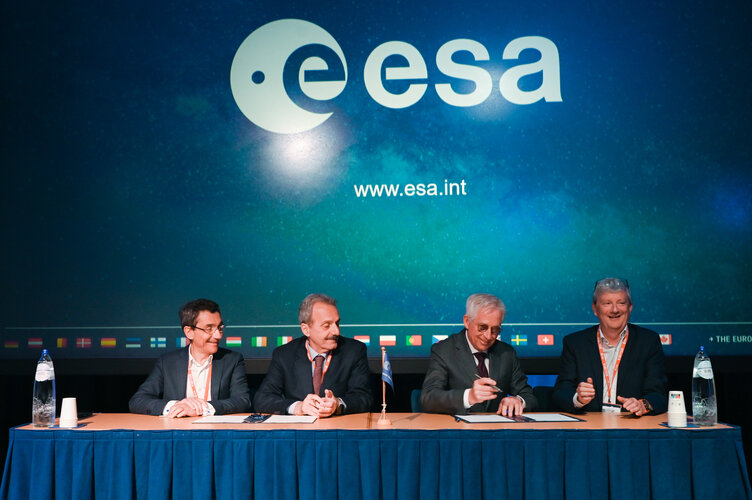
The main procurements batch of Galileo Second Generation initiated last summer has been finalised, leaving the system ready for its In Orbit Validation development phase. Today, following the opening session of the European Navigation Conference (ENC), ESA Director of Navigation Javier Benedicto invited Thales Alenia Space (Italy), Airbus Defence and Space (Germany) and Thales Six GTS (France) to sign the respective contracts commencing System Engineering Support for the next generation of Europe’s navigation satellite system.
How much damage will lunar landings do to lunar orbiters?
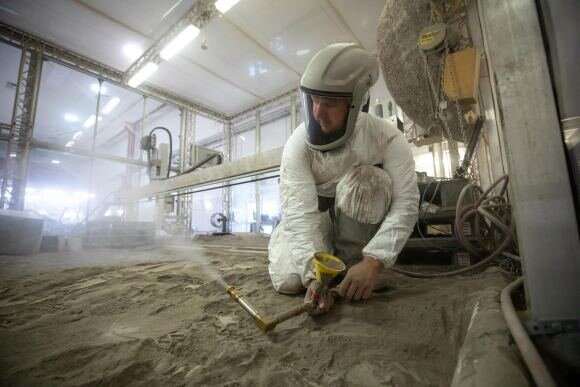
Multiple missions are destined for the moon in this decade. These include robotic and crewed missions conducted by space agencies, commercial space entities, and non-profit organizations. The risks and hazards of going to the moon are well-documented, thanks to Apollo Program and the six crewed missions it sent to the lunar surface between 1969 and 1972. But unlike the "footprints and flags" of yesterday, the plan for the coming decade is to create a "sustained program of lunar exploration and development."
This means establishing a greater presence on the moon, building infrastructure (like habitats, power systems, and landing pads), and missions regularly coming and going. Given the low-gravity environment on the moon, spacecraft kick up a lot of lunar regolith (aka.
NASA talks UFOs with public ahead of final report on unidentified flying objects
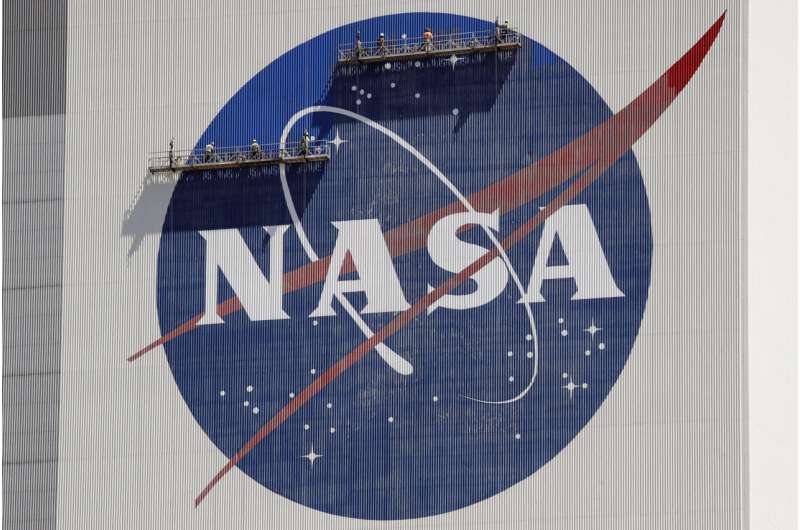
NASA held its first public meeting on UFOs Wednesday a year after launching a study into unexplained sightings.
The space agency televised the hourslong hearing featuring an independent panel of experts. The team includes 16 scientists and other experts selected by NASA including retired astronaut Scott Kelly, the first American to spend nearly a year in space.
Several committee members have been subjected to "online abuse" for serving on the team, which detracts from the scientific process, said NASA's Dan Evans, adding that NASA security is dealing with it.
One spacecraft could visit all of Saturn's inner large moons
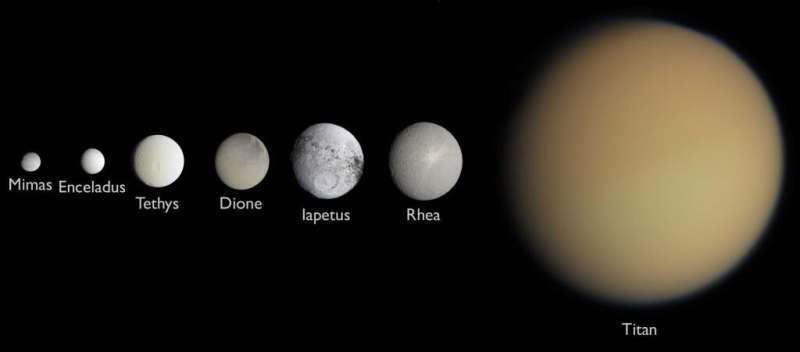
If you've ever played Kerbal Space Program, you know how difficult it can be to get your spacecraft into the orbit you want. It's even more difficult in real life. This is why it's pretty impressive to see a proposal to study all of Saturn's large inner moons in one go.
At a broad level, orbits are pretty simple. Planets and moons are basically ellipses. Once set into motion, spacecraft generally follow an elliptical or parabolic path, so it's just a matter of lining up your spacecraft's orbit with your destination and point of origin. You can do the calculations by hand if you know the math.
Once hostile, NASA holds first public meeting on UFOs
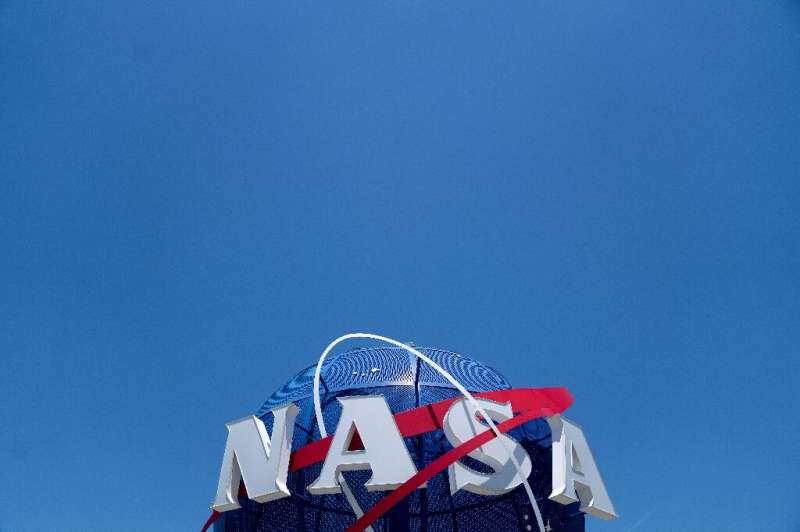
The truth is out there—but we're going to need to look harder.
Scientists at NASA's first ever public meeting on "unidentified anomalous phenomena"—more commonly called UFOs—called Wednesday for a more rigorous scientific approach to clarify the origin of hundreds of mysterious sightings.
The space agency announced last year it was analyzing observations in the sky that can't be identified as aerial or natural phenomena—a subject that has long fascinated the public but was shunned by mainstream science.
Metal fuel for carbon-free energy on Earth… and the Moon
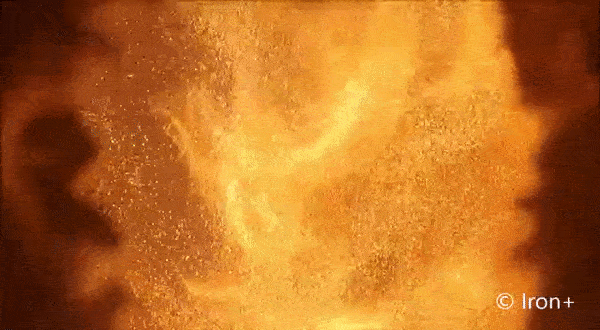
Everything burns. Given the right environment, all matter can burn by adding oxygen, but finding the right mix and generating enough heat makes some materials combust more easily than others. Researchers interested in knowing more about a type of fire called discrete burning used ESA’s microgravity experiment facilities to investigate.
Tune in for first Mars livestream

For one hour on Friday 2 June, join ESA on YouTube for a space first as live images stream down direct from Mars – this will be the closest you can get to a live view from the Red Planet.
